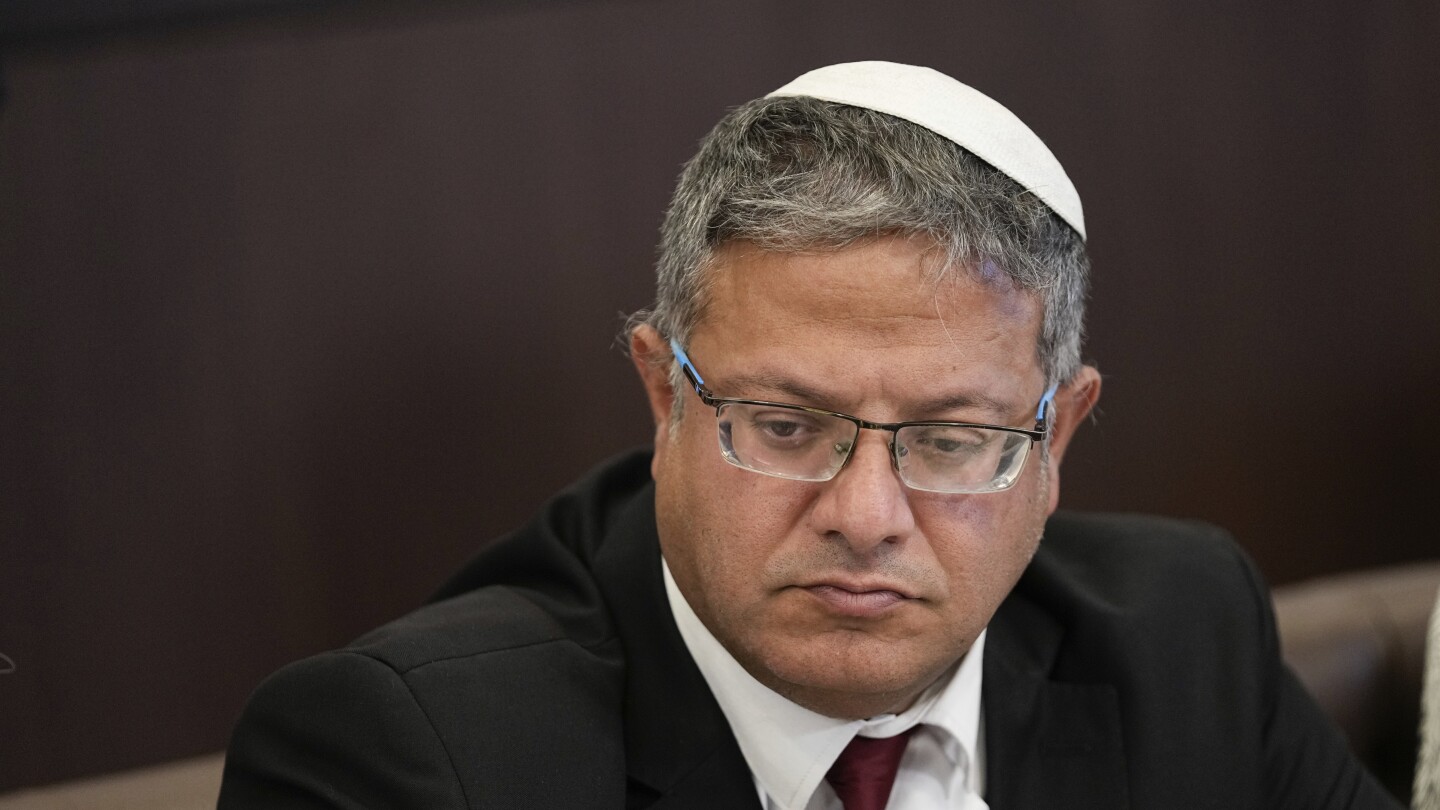TEL AVIV, ISRAEL (AP) — Israel’s far-right national security minister, Itamar Ben-Gvir, visited Jerusalem’s most sensitive holy site on Wednesday in what he described as a protest against the recognition of a Palestinian state by three European countries.
It was the latest act of defiance by an ultranationalist settler leader who has transformed himself over the decades from an outlaw and provocateur into one of Israel’s most influential politicians.
In his Cabinet post, Ben-Gvir oversees the country’s police force. As a key coalition partner, Ben-Gvir also has the power to rob Prime Minister Benjamin Netanyahu of his parliamentary majority and force early elections.
Ben-Gvir has used his influence to push forward pet projects and encourage Netanyahu to press ahead with the war in Gaza against widespread calls to reach a cease-fire deal that would bring home hostages.
The stunning rise of Ben-Gvir, 48, is the culmination of years of efforts by the media-savvy lawmaker to gain legitimacy. But it also reflects a rightward shift in the Israeli electorate that brought his religious, ultranationalist ideology into the mainstream and diminished hopes for Palestinian independence.
Here is a closer look at Ben-Gvir:
RUN-INS WITH THE LAW
Ben-Gvir has been convicted eight times for offenses that include racism and supporting a terrorist organization. As a teen, his views were so extreme that the army banned him from compulsory military service.
Ben-Gvir gained notoriety in his youth as a follower of the late racist rabbi Meir Kahane. He first became a national figure when Ben-Gvir famously broke a hood ornament off then-Prime Minister Yitzhak Rabin’s car in 1995.
“We got to his car, and we’ll get to him too,” he said, just weeks before Rabin was assassinated by a Jewish extremist opposed to his peace efforts with the Palestinians.
Two years later, Ben-Gvir took responsibility for orchestrating a campaign of protests, including death threats, that forced Irish singer Sinead O’Connor to cancel a concert for peace in Jerusalem.
MOVING TO THE MAINSTREAM
Ben-Gvir is trained as a lawyer and gained recognition as a successful defense attorney for extremist Jews accused of violence against Palestinians.
With a quick wit and cheerful demeanor, the outspoken Ben-Gvir also became a popular fixture in the media, paving his way to enter politics. He was first elected to parliament in 2021.
Ben-Gvir has called for deporting his political opponents, and in the past has encouraged police to open fire on Palestinian stone-throwers in a tense Jerusalem neighborhood while brandishing a pistol. As national security minister, he has encouraged police to take a tough line against anti-government protesters.
CONTROVERSIAL MINISTER
Ben-Gvir secured his Cabinet post after 2022 elections that put Netanyahu and his far-right partners, including Ben-Gvir’s Jewish Power party, into power.
“Over the last year I’ve been on a mission to save Israel,” Ben-Gvir told reporters before that election. “Millions of citizens are waiting for a real right-wing government. The time has come to give them one.”
Ben-Gvir has been a magnet of controversy throughout his tenure — encouraging the mass distribution of handguns to Jewish citizens, backing Netanyahu’s contentious attempt to overhaul the country’s legal system and frequently lashing out at U.S. leaders for perceived slights against Israel. He has threatened to bring down the government if Israel does not launch a full-fledged invasion of the southern Gaza city of Rafah.
Early this month, Ben-Gvir criticized Joe Biden when the U.S. president threatened to withhold certain military aid if Israel invades Rafah. Ben-Gvir, using a heart emoji in a post to “X,” wrote that Hamas loves Biden.
On Wednesday, Ben-Gvir toured the contested hilltop compound that is home to the Al Aqsa Mosque to denounce a decision from Spain, Ireland and Norway to recognize a Palestinian state.
Palestinians consider the mosque a national symbol and view such visits as provocative, though Ben-Gvir has frequently visited the site, revered by Jews as the Temple Mount, during tense periods. Tensions at the disputed compound have fueled past rounds of violence.
Ben-Gvir said he wanted to make a statement “from the holiest place for the people of Israel, which belongs only to the state of Israel.”

